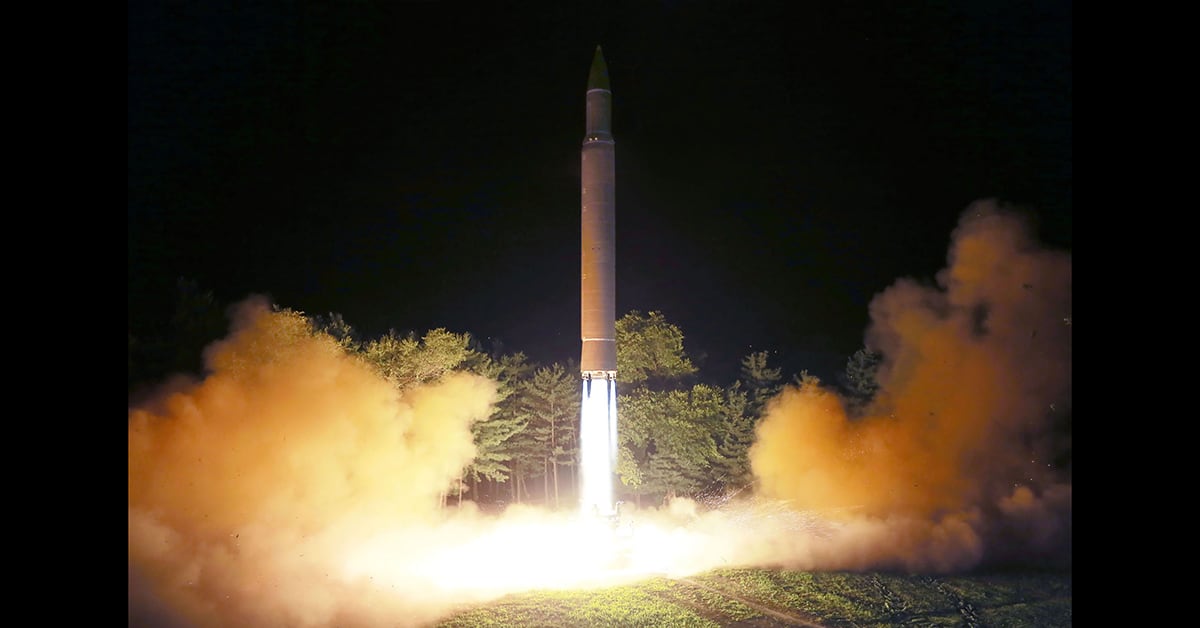TOKYO — Japan needs to bolster its missile defenses and its alliance with the United States, its government stressed Tuesday in an annual defense review that judged North Korea to still be a serious threat that has not taken concrete steps to denuclearize.
The defense paper, approved Tuesday by the Cabinet, said Japan must add to its missile defense capabilities to be fully prepared while watching if North Korea keeps its promise.
President Donald Trump and North Korean leader Kim Jong Un signed a vague joint statement at their summit in June that included agreements to denuclearize the Korean Peninsula. Last week, Trump directed Secretary of State Mike Pompeo to postpone a planned trip to the North, citing insufficient progress.
North Korea tested intercontinental ballistic missiles last year, including launching some over Japan, and it deploys several hundred shorter-range Rodong missiles capable of hitting Japan. The defense paper also says Pyongyang likely has made miniaturized nuclear warheads it can place atop ballistic missiles, an advancement of its nuclear capability that North Korea has claimed to have achieved.
RELATED

North Korea has increased the range, accuracy and versatility of its missiles and diversified its launch sites and methods over the past few years. In addition to the three nuclear tests the North has conducted since 2016, it also has carried out more than 40 missile tests in that time, according to the paper.
"Its military actions have become an unprecedentedly serious and imminent threat to Japan's national security," the paper said. "There is no change in our basic recognition about the threat of North Korea's nuclear weapons and missiles."
It was “significant” that Kim promised to pursue denuclearization of the peninsula but it is necessary to watch what North Korea does to scrap its nuclear weapons and missiles, the report said.

While the United States is primarily concerned about the ICBMs that can reach its mainland, Japan is within range of North Korea's smaller missiles. Prime Minister Shinzo Abe has pushed to raise Japan's military participation and its missile defenses. Joint exercises with the U.S. and other defense partners including Britain and Australia have significantly increased, and Japan is buying costly U.S. equipment as Trump tries to sell more weapons and reduce the U.S. trade deficit.
Japan is currently updating its national defense guidelines and the medium-term defense program to reflect North Korea's threat, and to have "necessary and sufficient defense capabilities qualitatively and quantitatively," the paper said.
It has also stepped up surveillance and patrolling in regional seas to crack down on offshore ship-to-ship oil transfers to North Korean vessels in violation to U.N. sanctions.
Tuesday’s report comes days before Japan’s Defense Ministry is set to approve its fiscal 2019 budget plan that would include an initial acquisition cost for a land-to-air missile defense system, Aegis Ashore. Opposition to that purchase has risen since Pyongyang suspended missile tests this year as it made diplomatic overtures to its ally China as well as the U.S. and South Korea.
The defense paper also raised strong concerns about China's military budget increases, its modernization and buildup of forces and weaponry, and its continuing assertive moves in the region's airspace and seas.
Japan and China have long disagreed over their history and over a cluster of East China Sea islands they both claim, but their relations have seemed to improve as China tries to be a leader in Asia, a better neighbor and a contrast to Trump's U.S.-first policy.
The defense paper welcomed China’s cooperation in starting a mechanism for sea and air defense communications, an initiative meant to avoid unanticipated events in disputed areas.




